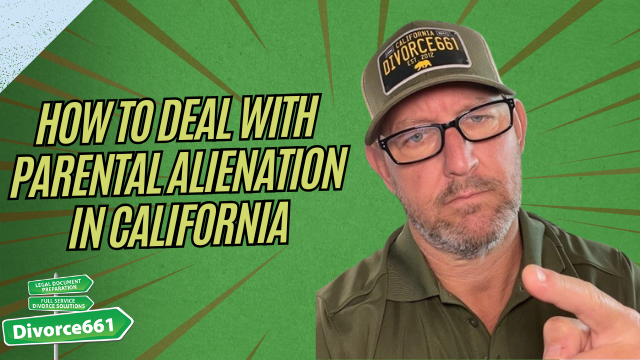How to Deal with Parental Alienation in California
Parental alienation can be one of the most painful parts of a divorce or custody battle. If you feel your child is being turned against you through manipulation, negative talk, or restricted contact, you are not alone and there are concrete steps you can take. California courts focus on the best interest of the child, and children deserve a healthy relationship with both parents.
What parental alienation looks like
Parental alienation occurs when one parent intentionally tries to damage the child s relationship with the other parent. Common behaviors include:
- Making negative comments about the other parent in front of the child
- Interfering with or blocking phone calls and messages
- Refusing or limiting court-ordered visitation
- Encouraging the child to reject or fear the other parent
- Withholding information about events, school, or medical needs to control the child s access
How California courts view parental alienation
California courts take parental alienation seriously because the guiding principle in custody cases is the best interest of the child. Judges expect both parents to support a healthy parent-child relationship. When alienating behavior is proven, courts can revise parenting plans, enforce visitation, and order remedies that protect the child s access to both parents.
Children deserve a healthy relationship with both parents.
A real example of a successful approach
One parent we represented was being shut out after separation. The other parent was interfering with calls, making negative comments, and refusing visitation. We documented the behavior, included detailed evidence in the custody request, and asked the court to address the interference. The result was a revised parenting plan and enforcement of the parent s visitation rights.
Practical steps you can take right now
Take practical, documented actions rather than reacting emotionally. Here is a step by step approach that courts respect and that preserves your relationship with your child.
- Document everythingKeep a dated log of incidents: missed exchanges, blocked calls, comments the child repeats, texts and emails. Write down times, places, and any witnesses. Consistent records are often persuasive in court.
- Preserve electronic evidenceSave voicemails, text messages, emails, and social media posts. Take screenshots and back them up. Do not alter or delete evidence.
- Make reasonable communication attemptsContinue trying to contact your child in ways you can show the court you were available. Keep messages calm, brief, and child-focused. Avoid arguments in messages.
- Avoid retaliatory behaviorDo not badmouth the other parent to the child or escalate conflict. Courts are less sympathetic to parents who contribute to the problem.
- Gather third party witnessesTeachers, coaches, therapists, and family members who observe the child s behavior or the other parent s conduct can provide useful statements.
- Consider professional evaluation and therapyA custody evaluation, court-ordered counseling, or child therapy can both help the child and provide evidence about the extent of alienation.
- Seek modification or enforcement through the courtIf alienation is ongoing, ask the court to modify the parenting plan, enforce visitation orders, or order co-parenting classes. The court can craft remedies to reduce conflict and protect the child s relationship with both parents.
How legal help can make a difference
Parental alienation cases involve both emotional and legal complexity. Legal help can:
- Identify what behavior qualifies as alienation under California law
- Help you collect and organize admissible evidence
- Draft requests for custody modification or enforcement that highlight the best interest of the child
- Coordinate with mental health professionals and witnesses
- Advise strategies that minimize escalation while protecting your rights
Practical representation often includes documenting the alienation in court papers, proposing a revised parenting plan, and asking the judge to enforce visitation rights when appropriate.
Next steps
If you suspect parental alienation is harming your relationship with your child, start by documenting incidents and preserving evidence. Seek professional advice to evaluate options for custody modification, enforcement, or therapeutic intervention. If you would like help getting organized and presenting the situation to the court, consider scheduling a consultation at Divorce661.com. Remote and flat-fee options are available to help parents across California take action without unnecessary cost or delay.
Protect your rights and your relationship with your child by taking measured, documented steps today.

